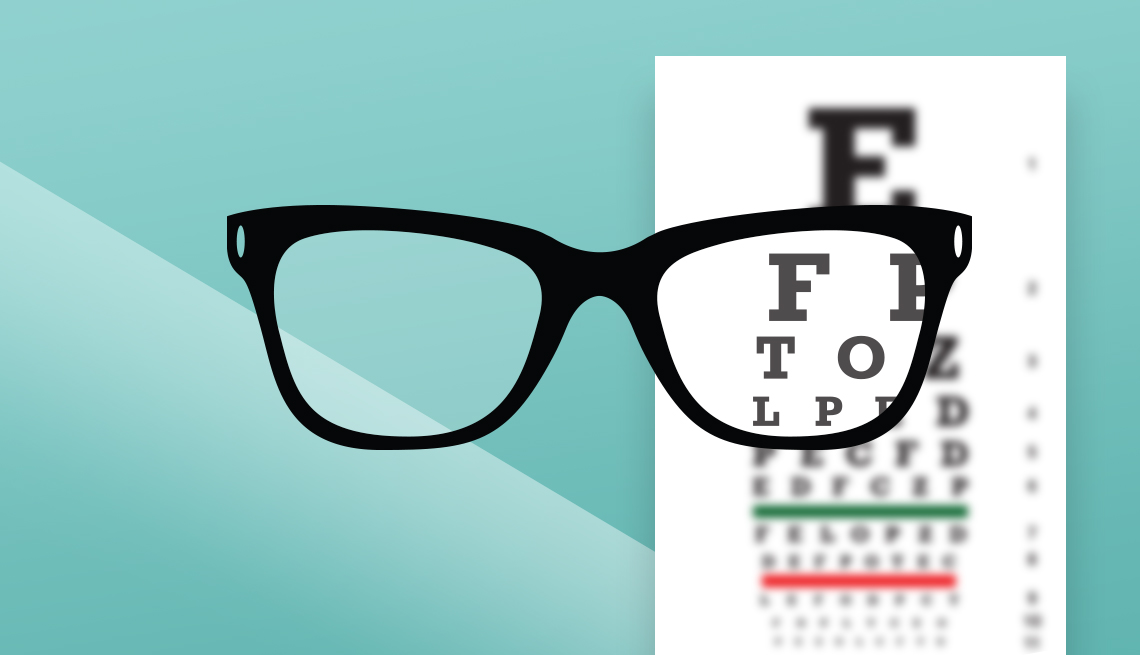Andalusia Optometrist: Devoted Vision Take Care Of Every Patient
Andalusia Optometrist: Devoted Vision Take Care Of Every Patient
Blog Article
Is Refractive Surgical Treatment Right for You? Variables to Consider for Better Eyecare
In the world of eye treatment, the decision to undertake refractive surgical treatment is a crucial one that demands thoughtful factor to consider. From the details of one's eye health to the complexities of daily habits and personal expectations, each facet holds value in the broader landscape of refractive surgical procedure candidacy.
Eye Health And Wellness Assessment
When thinking about refractive surgery, an extensive eye health and wellness assessment is critical to analyze the suitability of the treatment for each individual. eye doctors in andalusia. This examination involves a collection of assessments and examinations conducted by an eye care professional to figure out the total wellness of the eyes, the existence of any type of hidden problems, and the stability of the refractive mistake
During the examination, various factors are considered, such as the person's case history, current eye prescription, corneal density, student dimension, and tear movie high quality. These evaluations help to determine any kind of contraindications to refractive surgical treatment, such as corneal abnormalities, cataracts, or unattended eye infections. Additionally, the assessment helps to manage patient expectations pertaining to the potential outcomes of the surgical procedure based upon their unique eye qualities.
Inevitably, the eye health examination is crucial in making certain the safety and security and efficiency of refractive surgery, as it gives beneficial understandings into the individual's eye health and wellness condition and helps identify the most appropriate therapy options for attaining ideal aesthetic results. (eye doctors in andalusia)
Way Of Living Assessment
A thorough lifestyle assessment is essential in determining the viability of refractive surgical treatment for a person's visual improvement demands. Way of life variables such as profession, leisure activities, and everyday tasks play a vital role in the decision-making procedure regarding refractive surgery.
In addition, way of living routines such as sporting activities involvement, exterior tasks, or also skin care routines can affect the recovery process and overall success of refractive surgical treatment. By performing a comprehensive way of living analysis, eye treatment experts can tailor their recommendations and therapy plans to fulfill the one-of-a-kind requirements of each individual, inevitably leading to enhanced visual end results and complete satisfaction.
Assumption Positioning

Establishing sensible expectations entails detailed pre-operative discussions in between the individual and the ophthalmologist. The specialist ought to transparently communicate the possible dangers, benefits, and constraints of the procedure (eye center andalusia). Individuals need to understand that while numerous individuals attain 20/20 vision or much better following refractive surgical procedure, some may still require glasses for particular activities like analysis or driving at night. Taking care of these expectations helps stop disappointment and frustration post-surgery, leading to an extra positive general experience for the patient.
Danger Evaluation

Variables that may raise the risk of difficulties include age, particular medical problems like autoimmune conditions, unsteady vision prescription, slim corneas, and unrealistic client assumptions. Additionally, selecting a experienced and proficient cosmetic surgeon, complying with pre and post-operative treatment instructions faithfully, and disclosing any type of pertinent medical background can help reduce threats.
To minimize the probability of difficulties, ophthalmologists carry out thorough pre-operative examinations to recognize any kind of contraindications to surgery. They also talk about the prospective dangers and advantages with people throughout the appointment procedure. By involving in open interaction and shared decision-making, both the client and the eye doctor can interact to determine if refractive surgery is the right choice based on individual risk accounts and wanted end results.
Appointment Relevance
Taking into consideration the critical duty of educated decision-making in analyzing threats and prospective difficulties in refractive surgical procedure, the assessment process holds substantial significance in directing individuals in the direction of ideal end results. During the examination, the ophthalmologist evaluates the person's eye wellness, refractive mistakes, and overall viability for surgical procedure. This preliminary assessment is crucial in determining one of the most appropriate procedure for every individual, taking right into account aspects such as corneal thickness, student dimension, and existing eye conditions.
In addition, the examination serves as a possibility for individuals to discuss their assumptions, issues, and any kind of inquiries they may have regarding the surgical treatment. Clear communication in between the specialist and the patient is important to make sure realistic assumptions and a comprehensive understanding of the possible risks and advantages involved.
Furthermore, the consultation enables the doctor to discuss the various surgical choices readily available, their respective results, and the post-operative treatment required. This detailed conversation empowers individuals to make educated decisions regarding their eye treatment, leading to better contentment and outcomes post-surgery.
Final Thought
To conclude, individuals thinking about refractive surgical procedure should go through a thorough eye health assessment, other examine their way of living habits, align their expectations with prospective results, examine the associated risks, and prioritize examinations with eye treatment specialists. These variables play an important function in figuring out the viability of refractive surgical procedure for each and every person, ensuring optimal outcomes and complete satisfaction with the procedure.
Clients thinking about refractive surgery frequently have high expectations concerning the outcomes, expecting excellent vision without the demand for glasses or call lenses. While refractive surgical treatment can considerably enhance vision and decrease dependency on aesthetic help, it is vital for individuals to comprehend that results may differ important link based on private elements such as the degree of refractive mistake, corneal density, and general eye health.
By involving in open interaction and shared decision-making, both the eye doctor and the individual can function together to determine if refractive surgical procedure is the ideal option Resources based on individual threat profiles and desired outcomes.
Thinking about the critical function of notified decision-making in evaluating threats and potential difficulties in refractive surgical treatment, the assessment procedure holds considerable importance in leading clients towards optimum results. Throughout the examination, the ophthalmologist reviews the client's eye health, refractive mistakes, and overall viability for surgical treatment.
Report this page